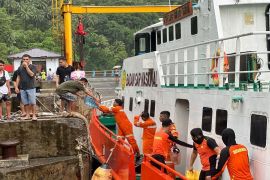The three-judge panel hearing the case denied the request, however, and after receiving testimony from five witnesses who all said the senior Sunni official orchestrated attacks in the latest episode of Hashemi`s trial in absentia, adjourned the trial until June 19.
"They have asked for Jalal Talabani, (former Vice President) Adel Abdel Mahdi, (Talabani`s chief-of-staff) Nasser al-Ani," and four MPs belonging to Hashemi`s mostly Sunni-backed Iraqiya bloc to testify, one of the judges said.
The judges denied the request on the grounds that defence lawyers had not asked for the group to be questioned before the trial, and because "the request did not clearly indicate what things they want to prove with these witnesses."
The refusal was the second time a request made by Hashemi`s defence lawyers was denied, after they were told the vice president`s travel schedule was not relevant evidence at the last hearing on May 20.
At the time, the defence team withdrew from the case and on Thursday, they sat with spectators, but continued to speak directly to the judge and present requests.
Also on Thursday, the court in central Baghdad heard from three of Hashemi`s bodyguards, who all said the vice president, last known to be in Turkey, had orchestrated violent attacks.
Two officials -- one a police brigadier general and the other a member of the Sunni Endowment, which manages Sunni Muslim religious sites in Iraq -- also gave similar testimony.
Previous hearings have seen Hashemi`s bodyguards and other officials testify they were offered money, or were coerced, into carrying out attacks on the vice president`s orders.
Hashemi, one of Iraq`s top Sunni Arab officials, was accused in December of running a death squad and, along with his staff and bodyguards, faces around 150 charges. He insists the accusations are politically-motivated.
After the initial charges were filed, he fled to Iraq`s autonomous Kurdish region, before embarking on a regional tour that has taken him to Qatar, Saudi Arabia and now Turkey. Ankara has said it will not extradite him to Iraq. (*)
Editor: Kunto Wibisono
Copyright © ANTARA 2012






